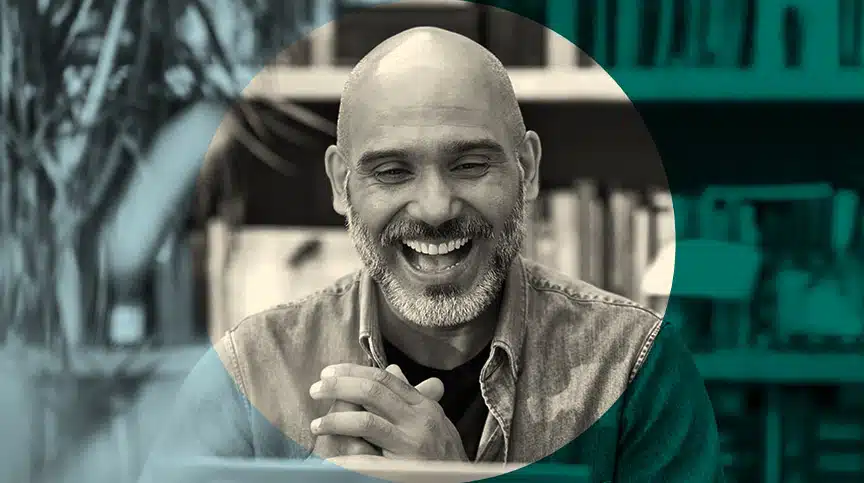Understanding the Connection Between Sleep and Leadership
The science is increasingly clear: sleep matters to your mental, physical, and emotional health.
People feel better and function better when they get adequate sleep. Without enough sleep, people are not only tired at work, but their self-awareness and interpersonal savvy decrease, and problem-solving and decision-making abilities also decline — all things that get in the way of quality work and effective leadership.
Although sleep is a personal and individual matter, the costs of sleep deprivation are paid by organizations. Sleep and productivity are linked, so if leaders are shortchanging sleep, packing more into their days without rest and recovery, they aren’t performing at their best.
Instead, they may be compromising team effectiveness; making poor decisions; and struggling to innovate, collaborate, and manage complexity.
Yet few empirical research studies have examined the sleep habits of leaders in organizations. Do they get enough sleep to perform at their best? Or are they tired at work?
Tired at Work? Our Research on Leaders’ Sleep Patterns
We have looked extensively at the connection between sleep and leadership. We examined the sleep patterns reported by leaders and what these patterns tell us about organizational factors affecting sleep. In our research study, we found that:
- Leaders don’t sleep enough, but some struggle more than others.
- Leaders would like to get more sleep, but work often keeps them awake.
- Leaders don’t sleep differently from other people, but they are assumed to sleep less.
In an earlier white paper, we gained insights about the underlying beliefs that people have about the connection between sleep and performance. This is important because if you believe that your VP sleeps less than both you and your colleague down the hall, you are showing an implicit association between getting less sleep and being a high performer at work.
But we found that the reality is different. In fact, there were no differences in self-reported sleep across all our respondents; consultants, CEOs, managers, and professionals in non-managerial positions all report similar sleep habits.
Executives were also some of the least likely to endorse such statements as “I think of high performers as energetic people that don’t need much sleep” or the assertion that “putting in long hours and sacrificing sleep is a necessary trade-off to get ahead at work.”
So when it comes to sleep, the view of the top does not match the view from the top.
Our paper’s findings also suggest that there are actions that organizations can take to improve sleep and work performance, such as:
- Educating leaders about best sleep practices;
- Countering the “workplace warrior” culture; and
- Supporting the ability to detach from work.
Supporting healthy sleep habits is an overlooked way organizations can nourish, develop, and protect their people, thereby improving retention, and maintain a capable, high-performing pool of talent.
Sleep and Leadership: What’s the Connection?
Experts around the globe are begging people to get more rest. And with good reason. The scientific evidence of the importance of sleep is staggering — and yet, most people don’t get the recommended 7–8 hours of sleep each night.
According to Harvard Medical School, even sleeping one hour less than what’s needed can have a negative impact, and sleeping longer on the weekend doesn’t prevent problems caused by lack of sleep during the week. As a result, many people are living and working in a sleep-deprived state.
In fact, 23% of employees in the U.S. report being too sleepy to fully function.
During sleep, significant work takes place — vital processes that are associated with a variety of functions impacting physical, cognitive, and emotional health. Not getting enough sleep is associated with the risk of infections, diabetes, hypertension, obesity, heart disease, depression, anxiety, and lower life expectancy.
Sufficient sleep lets people conserve and restore energy, build memories, and take in new information. Sleep improves cognitive functions such as memory, attention, and the ability to make connections and inferences. Sleep allows people to regulate their emotions and lower stress levels.
Notably, sleep impacts exactly the human capacities that are most important for leadership effectiveness: creative problem-solving, interpersonal savvy, sound decision-making, self-awareness, and energy.
Well-rested leaders are better equipped to be open to others’ views, juggle different mindsets and perspectives, demonstrate learning agility, and accomplish complex work through collaboration.
In contrast, poor sleep leads to:
- Diminished concentration
- Impaired memory
- Reduced ability to communicate
- Lowered creativity
- Increased moodiness, stress, and anxiety
- Difficulty responding to complex organizational challenges
When people are tired at work, their energy reserves are low and self-control suffers. They are more likely to succumb to impulsive desires and compromised decisions. That’s why, like exercise, sleep is among the 8 practices for resilient leadership.
Some Closing Thoughts About Being Tired at Work
Remember, making time for wellness in general, and sleep in particular, is not a sign of laziness or weakness, but rather, is a sign of strong leadership.
If you can’t improve your sleep quality on your own, see your doctor. There are treatments and therapies for many sleep disorders.
Organizations know they need leaders with the skills to engage and motivate others, steer through challenges, and manage change and complexity — which is why they provide leadership education, career experiences, and developmental opportunities to both their emerging and experienced leaders.
But for leaders to be high performers, consistently functioning at their very best, they aren’t tired at work. They get plenty of sleep, too. Organizational leaders are advised to support and encourage rest and resilience.
Ready to Take the Next Step?
Support your people in not being tired at work and help them better understand the sleep and leadership connection. Our resilience-building solutions will help your leaders learn how to avoid burnout — and burn bright instead.







